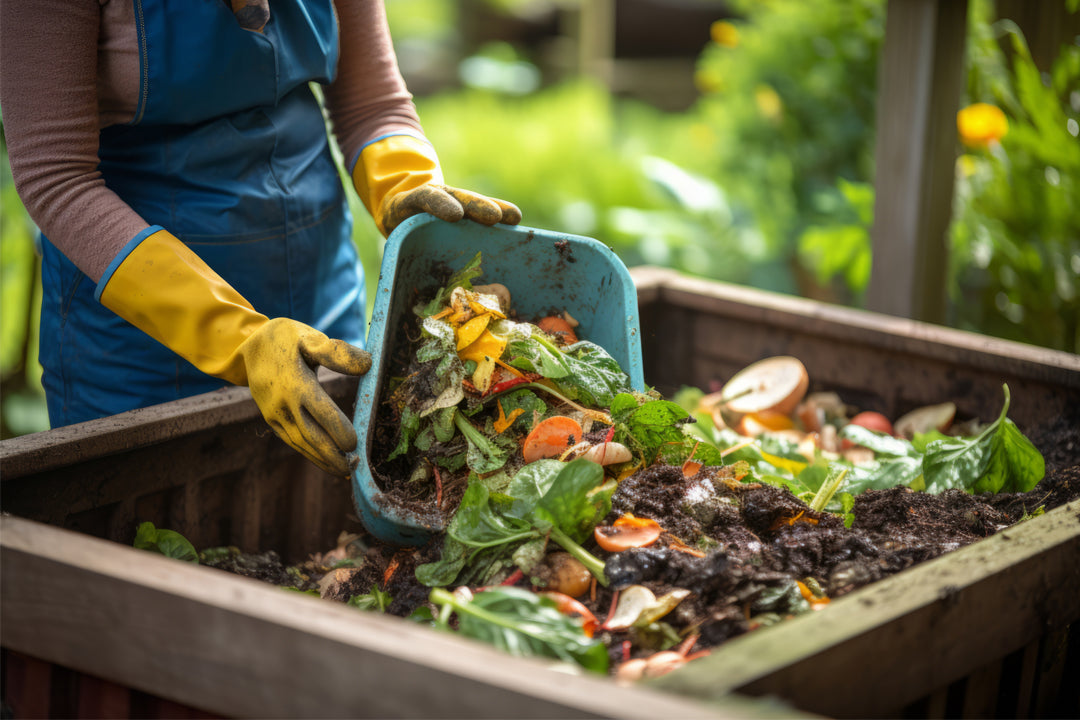

A Beginners Guide to Composting at Home
From reducing waste to enriching your garden, composting offers numerous benefits. However, for beginners, the process can seem daunting. The good news is that it doesn’t have to be. Here's a simple guide to help you kickstart your composting journey home.
Understanding Composting
Composting is a natural process where organic waste material decomposes into a nutrient-rich soil conditioner called compost. This process requires four main components: greens (nitrogen-rich materials), browns (carbon-rich materials), water, and air. When balanced correctly, these components provide an ideal environment for microorganisms to break down the waste.
1. Choose Your Compost Bin
Compost bins come in various types and sizes. A simple enclosed bin is sufficient for most households. If you have a small garden or patio, a Tumbler-style composter could be a great option, as it's compact and speeds up composting. For those with limited outdoor space, consider a worm bin or Bokashi system, which can be used indoors.
2. Collect the Right Ingredients
Composting requires a mix of 'greens' and 'browns.' Greens include fruit and vegetable scraps, coffee grounds, fresh grass clippings, and plant trimmings. They provide nitrogen, essential for microbial growth. Browns, such as dry leaves, straws, paper, and wood chips, provide carbon, which is an energy source for microbes. A good rule of thumb is to aim for a ratio of 3:1 browns to greens.
3. Create Your Compost Pile
Start your compost pile with a layer of browns at the bottom for good airflow. Then, alternate between layers of greens and browns, ensuring each layer is moistened. The pile should be turned every few weeks to incorporate air and speed up composting.
4. Maintain Your Compost Pile
A healthy compost pile should have a pleasant, earthy smell and feel warm to the touch. If it starts to smell bad or attract pests, it might be too wet, lack air, or have too many greens. Add more browns, turn it frequently, and ensure it's covered to remedy these issues.
5. Harvest Your Compost
Finished compost looks like dark, crumbly topsoil and has a pleasant earthy smell. This can take anywhere from 2 months to a year, depending on your composting system and the materials used. Once ready, you can mix it into your garden soil or use it to enrich your potted plants.
6. What Not to Compost
While composting is an excellent way to reduce kitchen waste, not all organic materials should be composted at home. Avoid meat, dairy, diseased plants, and pet waste, as they can attract pests and cause unpleasant odors. Also, refrain from composting weeds or plants with seeds, as home compost systems often don't reach high enough temperatures to kill them.
Conclusion
Composting at home is a rewarding process that transforms your kitchen scraps and yard waste into 'black gold' for your garden. It may require a little effort and patience, but the payoff is well worth it. So why wait? Start composting today and help nourish your plants and the planet.
Our ElectroDust™ Washable Air Filter
ElectroDust filters provide higher than industry average air quality and are built to higher standards. Our environmentally friendly filters allow you to wash and re-use them over a ten-year lifespan. After just ten months of using our filters, you will begin to realize savings. Furthermore, because ElectroDust filters are more efficient at capturing dust and foreign particles, you won’t require duct cleaning as often, saving you even more money. Less dusting means a healthier home.
